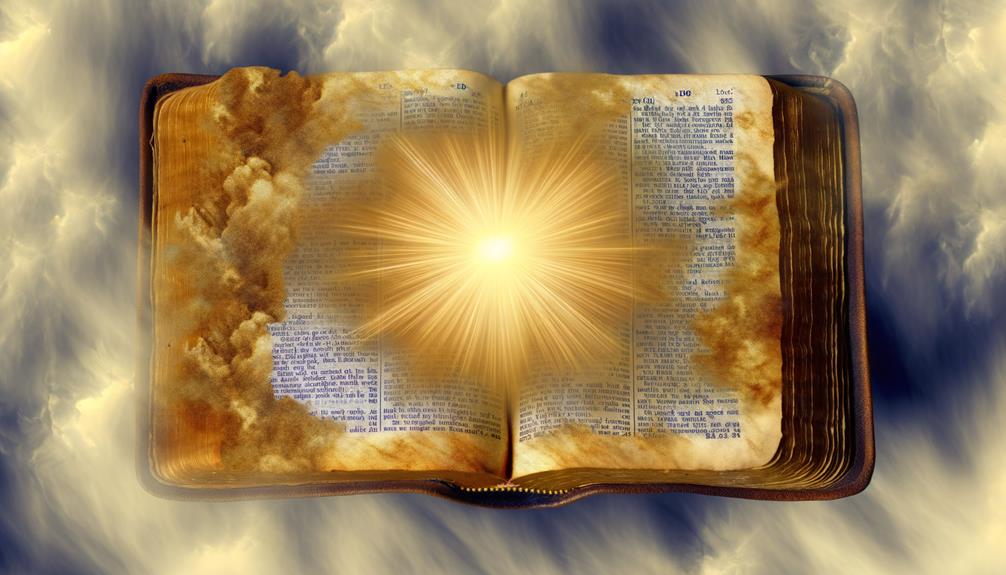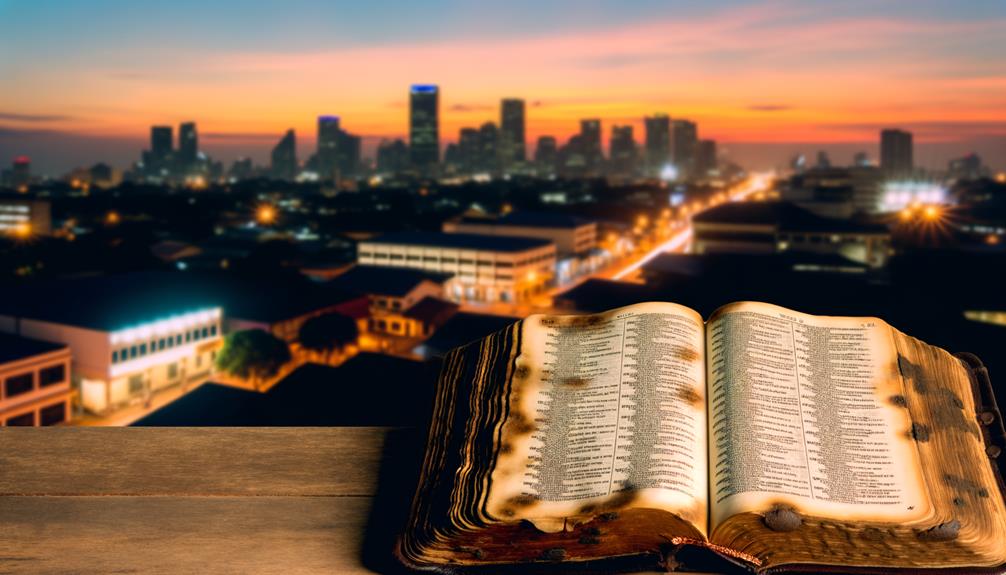Go Set a Watchman Bible Verse Meaning: Prophetic Guidance
The phrase ‘Go Set a Watchman‘ from Isaiah 21:6 symbolizes divine vigilance and spiritual readiness during a period of geopolitical upheaval. Historical context points to the Assyrian and Babylonian conquests, where watchmen were essential for city protection.
Theologically, it illustrates the necessity for constant spiritual alertness and moral duty. In modern times, it resonates as a call for ethical stewardship and accountability.
Harper Lee’s novel integrates this theme, challenging readers to address prejudices and uphold moral integrity. This allusion enhances understanding of both the biblical text and its cultural implications, inviting deeper exploration into its significance.

Go Set a Watchman Bible Verse: Meaning and Insights from Isaiah 21:6
| Aspect | Details |
|---|---|
| Verse Text | Isaiah 21:6: “For thus the Lord said to me: ‘Go, set a watchman; let him announce what he sees.’” |
| Biblical Context | Found in a prophecy of Isaiah regarding the fall of Babylon, emphasizing vigilance and warning. |
| Key Themes | Watchfulness, divine instruction, prophecy, and the importance of spiritual alertness. |
| Symbolism | The “watchman” represents a spiritual or prophetic figure tasked with observing and warning of danger. |
| Spiritual Insights | Highlights the role of spiritual leaders in guiding others and staying alert to God’s plans. |
| Practical Application | Encourages vigilance in faith, readiness for God’s work, and attentiveness to spiritual warnings. |
| Modern Relevance | Inspires individuals to take responsibility for being watchful in their own spiritual and moral lives. |
Historical Context of Isaiah 21:6

Isaiah 21:6, situated within the broader narrative of the Book of Isaiah, belongs to a period of intense geopolitical upheaval in the ancient Near East, specifically during the Assyrian and Babylonian conquests.
The verse occurs within a prophetic oracle concerning Babylon, symbolically referred to as the ‘desert by the sea.’ This era saw the rise and fall of empires, with shifting alliances and frequent warfare.
As the Assyrian empire waned, Babylon emerged as a significant power, casting a shadow over neighboring territories. Isaiah’s prophecies often reflect the anxiety and anticipation of these tumultuous times.
The directive to ‘Go, set a watchman’ underscores the vigilance required amidst looming threats, emphasizing the necessity for divine guidance and foresight in an uncertain world.
Theological Significance

In examining the theological significance of Isaiah 21:6, one must consider how the directive to ‘set a watchman’ serves as a profound metaphor for divine vigilance and the necessity of spiritual readiness amid existential threats. This verse underscores the role of prophetic vision in safeguarding a community’s spiritual integrity. Historically, watchmen were pivotal in alerting cities of impending danger. Theologically, this vigilance symbolizes God’s omnipresent watchfulness and the believers’ duty to remain spiritually alert.
| Concept | Historical Role | Theological Insight |
|---|---|---|
| Watchman | Alerted cities of impending danger | Symbolizes divine vigilance |
| Prophetic Vision | Provided guidance and warnings | Maintained spiritual integrity |
| Spiritual Readiness | Essential in times of existential threat | Highlights necessity of continued spiritual alertness |
Symbolism of the Watchman

The metaphor of the watchman in biblical literature serves as a powerful symbol of spiritual vigilance and moral duty, illustrating the imperative for constant awareness and preparedness in the face of moral and existential challenges.
Rooted in ancient Near Eastern practices, the watchman was tasked with guarding the city against threats.
Biblically, this role extended to prophets like Ezekiel, who were charged with warning Israel of impending divine judgment. Their messages often served as a call to repentance and a reminder of God’s covenant with His people. In contemporary discussions around prophecy, the mark of the beast explanation frequently emerges, as it outlines the consequences of turning away from divine instruction and succumbing to moral decay in society. This enduring theme highlights the need for vigilance and faithfulness in the face of spiritual challenges.
Theologically, the watchman embodies the Christian call to stewardship, urging believers to remain alert and steadfast in their faith.
This symbolism underscores the necessity of ethical discernment and the responsibility to guide others, reflecting the broader Judeo-Christian ethos of community accountability and spiritual guardianship.
Relevance in Modern Times

Examining the enduring significance of the watchman motif in contemporary contexts reveals its profound applicability to modern ethical and spiritual challenges.
Historically, the watchman served as a guardian, vigilant against threats, a role that resonates deeply in today’s complex moral landscape. This biblical metaphor underscores the necessity for individuals to act as moral sentinels, advocating for justice and integrity amidst societal turbulence.
Theologically, the watchman represents divine guidance, urging believers to remain steadfast in faith and ethical behavior. In a world grappling with issues of truth, accountability, and spiritual decay, the watchman’s call to vigilance and righteousness remains a potent, timeless directive.
This reminder highlights the enduring need for moral and spiritual guardianship in contemporary society.
Impact on Literature and Culture

Harper Lee’s utilization of the watchman motif in ‘Go Set a Watchman’ not only enriches the narrative’s theological depth but also serves as a poignant cultural commentary on the moral vigilance required in the face of societal injustice.
This biblical allusion underscores the protagonist’s internal struggle and societal critique, drawing parallels with the prophetic role in the Bible.
Historically, the watchman symbolizes a guardian of ethical integrity, resonating deeply within American literature and culture.
Lee’s invocation of this motif challenges readers to confront ingrained prejudices, urging a reflective stance on contemporary moral dilemmas.
Conclusion
The verse from Isaiah 21:6, ‘Go, set a watchman,’ reverberates through time, serving as a theological cornerstone and a symbol of eternal vigilance.
Its historical context and profound implications have rendered it a beacon of wisdom and caution.
This biblical injunction transcends epochs, permeating modern culture and literature with a force akin to a tidal wave, underscoring the perpetual necessity for moral and spiritual watchfulness in an ever-evolving world.






